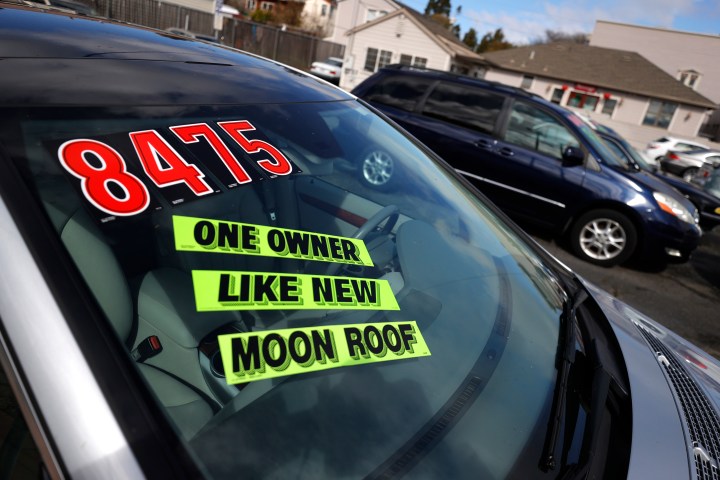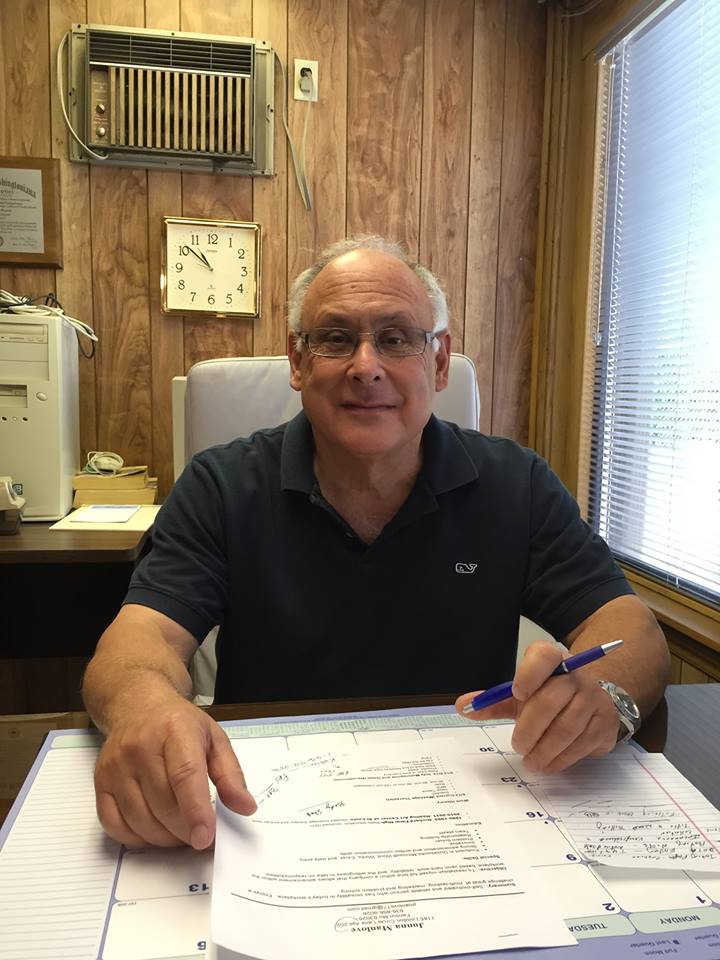
Why used cars are getting so expensive

Across the country, the used car market is surging. The average cost of used cars and trucks jumped 10% during the month of April and 21% from the same month a year before, partly fueling a 4.2% increase in the most recent consumer price index from the Bureau of Labor Statistics.
Mark Kugman, the third-generation owner of Kugman Motors, a used car dealership in St. Louis, Missouri, spoke with “Marketplace” host Kai Ryssdal about what’s driving that inflation and what it means for his dealership. The following is an edited transcript of their conversation.
Kai Ryssdal: I’m going to cut right to the chase here, Mr. Kugman: What is going on with used cars in this economy?
Mark Kugman: Well, I have two answers — one is simple, one is a little more complicated. Cars are scarce, so prices are up.
Ryssdal: OK, I’ll go with that, supply and demand works. That’s good. What’s the longer version?
Kugman: Well, the longer version is that production is slashed on new cars. Used car dealers rely on the new car market to drive our sales. We need the inventory. I can’t call a factory and ask them to send me additional used cars. We have to buy them at auction or trade-ins, and right now there’s very little inventory in the new car market.
Ryssdal: So how are you sourcing your inventory? What are you doing?
Kugman: Well, we are looking out of the box, so to speak, so virtual auctions. I’m going a little bit outside of my comfort zone, having to look [cars] over virtually, and we are paying higher prices for quality vehicles. And in addition to that, we’re paying for shipping, for logistics. … So we’re getting squeezed.

Ryssdal: Yeah, I imagine. But look, you have to be passing these costs on to your customers. It’s not like I can walk onto the Kugman Motors lot and get a deal right now, right? You’re having to pass it on?
Kugman: Well, we’re trying to do as little of that as possible, because we do want to be competitive. The market, the way it is now, anybody can go online and see what these vehicles should be selling for. The problem is there’s a lag between what’s really going on in the marketplace and what Kelley Blue Book or Black Book thinks the car should sell for.
Ryssdal: So you know, this is all rooted in semiconductors and all of those supply chain stories that we’ve been hearing, and all indications are that those problems are not going to be fixed, say, tomorrow. So the question is, how much longer can these prices keep going before something stops working?
Kugman: Well it’s going to impact sales, if it hasn’t already. Actually, our sales, interestingly, are up. It’s been an unusual period of high demand, and if you need a car, you need a car. St. Louis is a fantastic city, but our mass transit isn’t all that hot, particularly if you’re a shift worker getting off of job at a hospital or something at 2 in the morning. And the demand is really high, I think, due to the stimulus.
Ryssdal: Say more about that stimulus. People have money in their pockets, and they’re buying cars with it at least in part?
Kugman: Yeah, somebody who needs a car and all of a sudden you’ve got $5,000, and you’ve been putting it off, this is the time to look at cars. I’ve heard some of my competitors say, “I’m not gonna buy anything until the price has come down,” and that’s nonsense. We want to be there for our customers. Instead of raising prices, we’re trying to sell more aftermarket, possibly extended warranties, gap insurance, to try and make up some of that, but this too shall end. I’ve been through a lot of these things. I’ve been doing it for 48 years.
Ryssdal: Well, I was just gonna say, you’ve been around this business for a while. Have you ever seen anything like this?
Kugman: I’ve seen much worse, when interest rates were 21% and nobody was buying anything. So at least we have demand. It seems like the economy is fairly strong. It’s changed. It’s not the economy that it was 20 years ago when people worked in factories and all that, but people do have jobs and they still have needs.
There’s a lot happening in the world. Through it all, Marketplace is here for you.
You rely on Marketplace to break down the world’s events and tell you how it affects you in a fact-based, approachable way. We rely on your financial support to keep making that possible.
Your donation today powers the independent journalism that you rely on. For just $5/month, you can help sustain Marketplace so we can keep reporting on the things that matter to you.

















